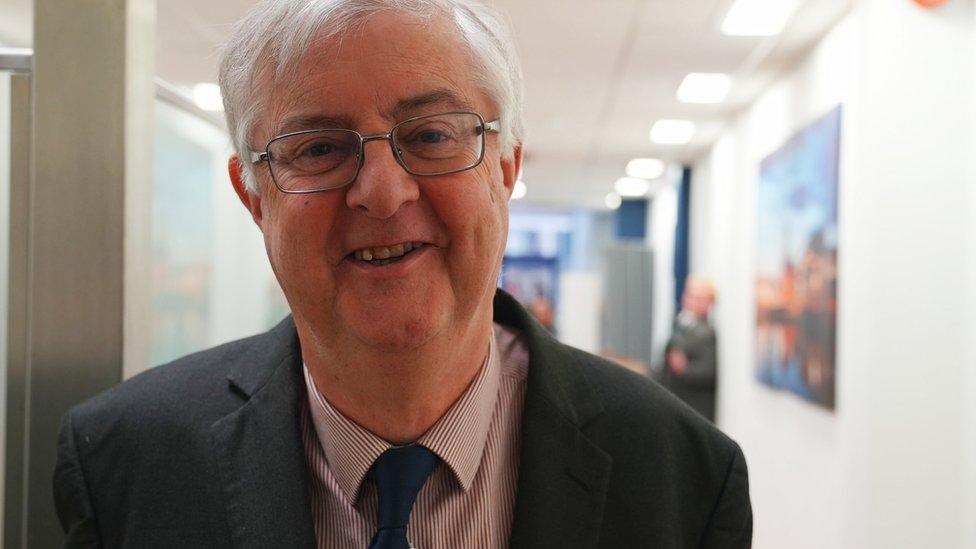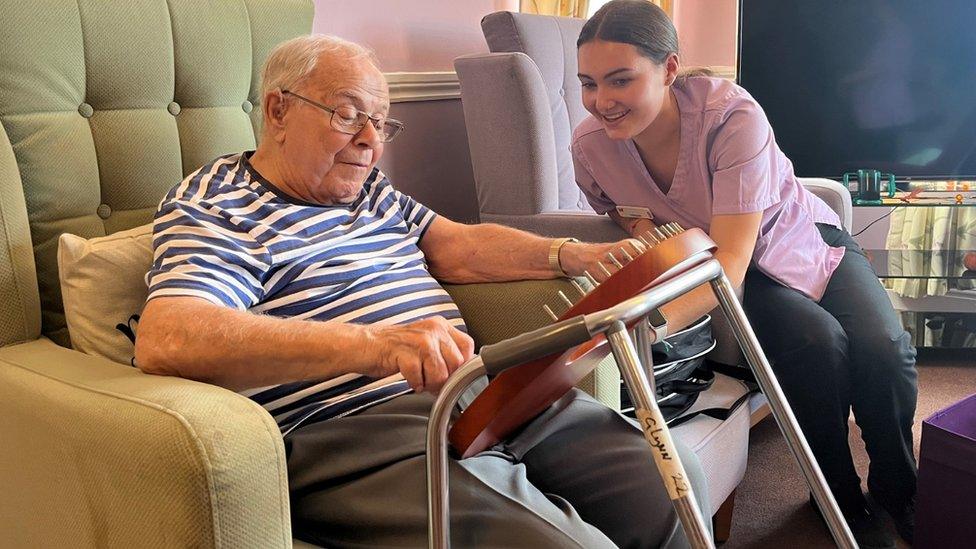Bed blocking: NHS bottleneck puts patients at risk - report
- Published

Many people are ready to leave hospital but unable
A bottleneck in discharging patients from hospital is putting people at risk and services under extreme pressure, a report found.
Healthcare Inspectorate Wales' review found "consistent challenges" caused by poor patient flow through wards.
It said the issues are wide-ranging but primarily stem from high demand for beds and the complexities involved in discharging medically fit patients.
The Welsh government allocated an extra £25m for emergency care closer to home.
A spokesperson said it would take on board the findings.
First Minister Mark Drakeford admitted the system was "under enormous pressure" on BBC Radio Wales Breakfast.
Asked about the prospect of strike action in the sector over wages causing further disruption, he said the Welsh government pays social care workers the real living wage - the only part of the UK to do so.
However, he said even this is not "a huge reward for their fantastic work", saying the money simply is not available to give more.

First Minister Mark Drakeford said he recognised the "fantastic work" in the sector but there was no money to pay higher wages
"Unnecessarily long stays in hospital due to delayed discharge can place patients at risk of hospital acquired infections or deterioration whilst awaiting discharge," the report warned.
"The bottleneck at the point of discharge has a knock-on impact on emergency departments, ambulance response times, inpatient care, planned admissions and overall staff wellbeing."
HIW said the result is the inpatient healthcare system across Wales operating under "extreme pressure".
For its review, HIW looked at patient flow in Wales - this is the movement of a person through a healthcare system from the point of admission until discharge.
It began in December 2021 and used the experience of stroke patients as a case study - from a person calling for an ambulance, transfer to hospital, assessment, inpatient treatment, through to discharge.
British Medical Association in Wales chairwoman Iona Collins said she was "not at all surprised" to hear the findings, adding: "I can't emphasise how much time really matters for stroke management."
She said specialists had told her for every minute delay, the brain loses 1.9 million brain cells.

Hospitals across Wales have patients ready for discharge
Dr Collins said: "If you can't get people out of a hospital, you can get people in, and when ambulances are stuck in car parks, people end up turning up themselves.
"So, when the system is inefficient, it is a symptom of the whole where patient flow is having a direct impact on patient outcomes."
The review was undertaken after concerns were raised in inspections carried out by HIW.
A key finding was the need to engage with people, to better understand the barriers to them accessing or choosing the range of NHS services available to them across Wales instead of visiting emergency departments.
These include minor injury units, mental health helplines, online consultations and the 111 service.
It said a positive was the fact suspected stroke patients were prioritised and transferred into hospitals promptly, but meeting the Welsh government's 15-minute target for handover was "challenging".
Bed pressures meant it was not always possible to move patients to the most appropriate ward for their care.
It found key issues in discharging medically fit patients were the availability of care home beds or social care, and rehabilitation therapy at home.
HIW Chief Executive Alun Jones said: "What is crucial now is that all parts of the health and social care sector work together as effectively as possible to address poor flow and achieve better outcomes for patients in Wales."
- Published8 January 2023

- Published3 January 2023
